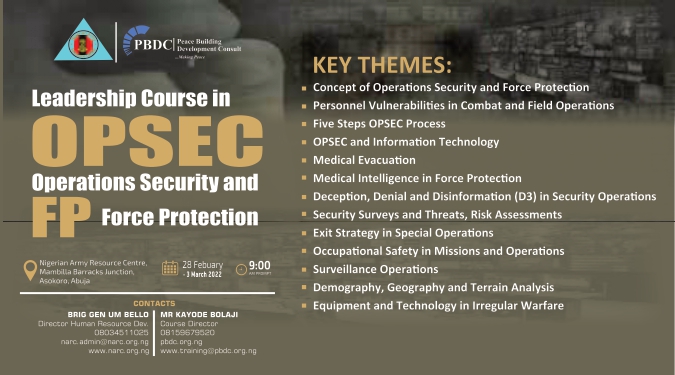
Leadership Course In Operations Security And Force Protection 1 (LCOSFP 1)
The evolving threats in the Nigerian security environment has created the need to develop a more robust system of Operations Security (OPSEC) and Force Protection (FP) for mission success. While the former places emphasis on preventing critical information and assets about operations from falling into the hands of adversaries, the latter places premium on securing the lives of field operatives and combatants. In WWII, OPSEC was pivotal in the deception plan leading up to and during execution of the Allied invasion of the northern Europe on D-Day in 1944. Whereas the original intention of the Allies was to invade from Normandy, Germany and the Axis were made to believe the invasion was intended for Pas de Calais. This resulted in a slow Axis response because enemy defensive forces were concentrated on Calais. The aim of OPSEC is to keep the adversary completely in the dark up until the launch of operations.
Force Protection on the other hand has been a vital part of combat over the years. This is because military and security operatives are out to protect the citizens and defend the territorial integrity of the country, the preservation of their lives is also quite important. It is important for troops and field operatives to be properly intimated by their commanders about the nature of threats in the area of operation. They must be knowledgeable about the consequences of their weapons and of unusual things and patterns preceding aggression. Commanders should ensure that their men remain alert, do not establish a routine, maintain appearance and bearing and keep a low profile. Perhaps, more important is the need to provide mission operatives with equipment, platforms, basic survival medicals and up to date operational awareness for their survival.


